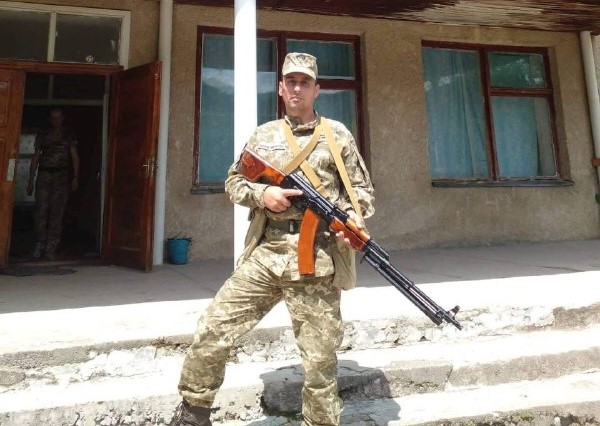Every fourth Roma in Ukraine is fighting against Russia while their displaced families are facing discrimination and prejudices according to preliminary data in a new survey.
“Fighting together in the trenches has become a unifying factor in the war-torn country,” Zeljko Jovanovic, director of the Roma Initiatives Office, told The Brussels Times. He expressed cautious optimism that the common suffering and struggle for Ukraine’s independence will bring about a change for the marginalised Roma minority after the war.
Roma fighters gained prominence in the beginning of the war when they managed to seize a tank from the Russian occupiers near Kakhovka in the Kherson region.
One in four of the respondents in the survey reported that their family members were currently serving in the armed forces, the territorial defence or in volunteer formations. The figure is taken from a sample of interviews during December 2022 – January 2023 with internally displaced Roma in Ukraine.
“The Roma have an unwritten law never to fight, not to take up arms at all,” one of the respondents in the survey said.
“But here in Ukraine, we are defending our own country. I also believe we are creating our own history – Ukrainian and Romani. We have our own Romani flag, and after I have finished my service, I’m going to open a little war museum so people will know that Roma also defended Ukraine.”
There are no reports that Roma in Russia has been drafted into the Russian army. In past wars, Roma had been fighting on both sides, Zeljko Jovanovic said and referred to the wars in the Western Balkans after the dissolution of Yugoslavia. “Despite their sacrifices, Roma soldiers and their families and communities were often subject to discrimination. “
The plight of Roma during and after the Balkans wars was hardly addressed and is not even discussed in the EU-facilitated Belgrade-Pristina dialogue. “After the war, Roma had difficulties to regain their property because of lack of IDs and property deeds. We need to learn from this negative experience and ensure that the Roma won’t be forgotten again.”
The interviews are part of a larger still unpublished study conducted by the Roma Initiatives Office at the Open Society Foundations. The majority of those surveyed come from the regions most affected by the war, where hostilities were still taking place: Kharkiv, Donetsk and Kherson.
According to an information paper issued by the European Parliamentary Research Service in May 2022, Ukraine's Roma population was considered the country's most vulnerable minority group and one which also faced a high level of discrimination before the outbreak of the war.
The number of Roma living in Ukraine is uncertain but the paper estimated the number to 400,000. Around 10-20 % of them lack the documents they need to acquire or attest their Ukrainian citizenship and to prove their residence status. This is a problem which was also common in other candidate countries before they joined the EU.
Since the beginning of the war, the Council of Europe (CoE) has reported discriminatory treatments against Roma when fleeing Ukraine. Ukrainian Roma have been facing difficulties along the evacuation route, at border crossing points and on arrival in Europe where they not always have been welcomed in shelters.
The figures in the new survey confirm the parliamentary report. Half of internally displaced Roma had experienced negative attitudes from both the local population and other IDPs. This was mainly due to prejudices against Roma, which was manifested in the unwillingness to provide housing or shelter.
Some respondents also noted negative attitudes because of their lack of knowledge of the Ukrainian language. Zeljko Jovanovic explained that Roma are trying to adapt to the surrounding population and therefore also speak Hungarian and Russian depending on which region in Ukraine they are living in.
The Roma minority shares the same suffering as the rest of civilian population in Ukraine with stories about death or injuries in their families. Almost half of the respondents had suffered material losses, including completely destroyed homes. The lack of documents confirming the ownership of housing makes it more difficult for them to receive compensation from the authorities.
The Roma are Europe’s largest ethnic minority. Out of an estimated 10-12 million Roma in Europe, some 6 million live in the EU. About 1 million live in the Western Balkans and 2.8 million in Turkey. Contrary to previous enlargement rounds, Roma integration is one of the conditions candidate countries have to fulfil to join the EU.
As previously reported, the European Commission has recently assessed the national Roma strategies on supporting the equality, inclusion, and participation of Roma in the EU. Problems of anti-Roma racism, segregation and discrimination in the EU persist but contrary to previous enlargement rounds, Roma integration is one of the conditions candidate countries have to fulfil to join the EU.
M. Apelblat
The Brussels Times

